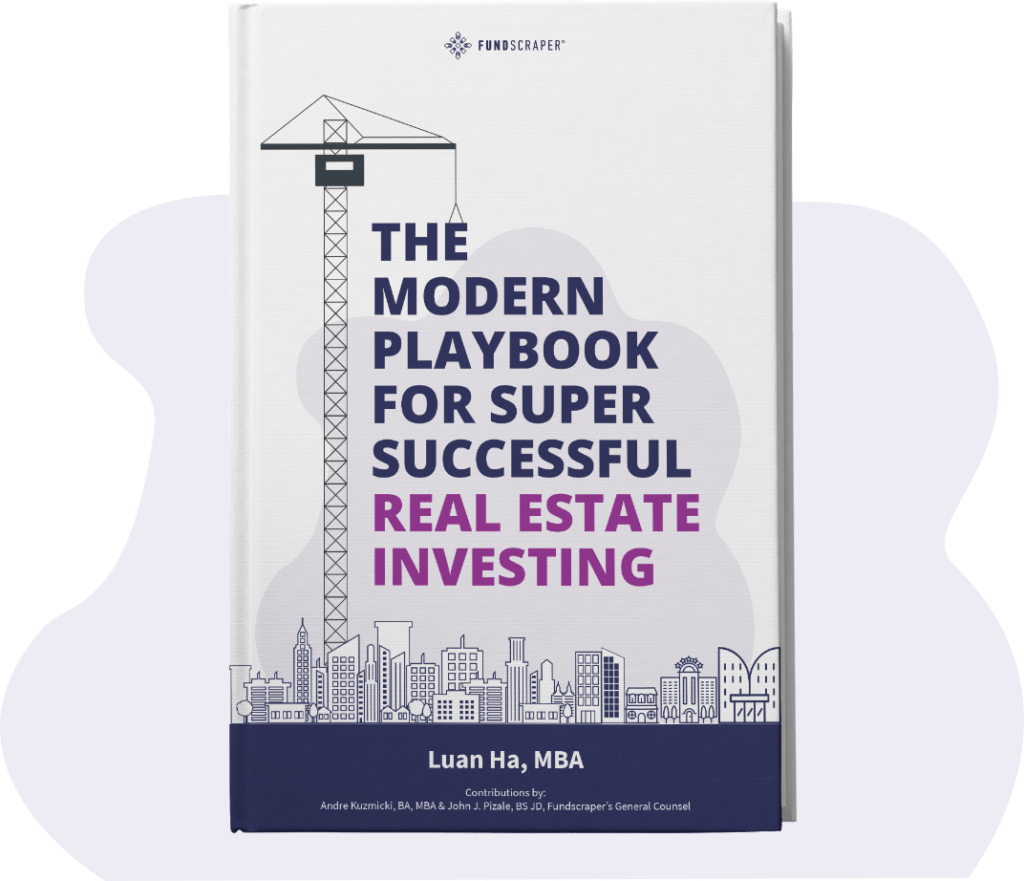Historically low-interest rates in recent years have become the driving force for many savvy investors to build wealth through one of Canada’s hottest private real estate investment products: mortgages. This is all possible through Mortgage Investment Corporations (MICs), which are designed to bring like-minded investors together to passively invest in real estate mortgages. Instead of owning “brick and mortar” and playing property manager, you’re a banker! But how well do they work? What considerations should investors note? Here, we show you how to analyze a MIC before investing in one.
Key Points
- Historically low-interest rates in recent years have become the driving force for many savvy investors to build wealth through one of Canada’s hottest private real estate investment products: mortgages.
- There’s more than one way to buy a property or buy a home. MICs are an accessible investment vehicle for many — especially those seeking diversification from traditional investments like mutual funds and the stock market.
The Modern Day Playbook For Super Successful Investing
How can a smart, modern investor get in on the real estate investing action, especially since going on your own may require prohibitive amounts of capital? Most people do not have the requisite knowledge or expertise to invest in real estate on their own.
Here’s Why You Should be Investing in Mortgage Investment Corporations
A MIC is a company that pools shareholder capital, lends that capital out as mortgages, earns income via interest and fees, and pays 100% of its net income (after management fees) back to the shareholders.
Dividends paid by the MIC are taxed as interest. Many MIC investors prefer to hold their shares in a registered account like an RRSP, RESP, RRIF, or TFSA.
An investment in shares of a well-managed MIC provides investors with:
- Capital preservation
- Regular dividend income
- Potential for growth via reinvestment
- Constant deployment of capital
- Full-service origination and administration
Still have questions about how to invest in mortgage investment corporations? Schedule a call with us and we’ll walk you through it.
Types of MICs
MICs usually hold the majority of their assets in high-yield, uninsured residential mortgages. Unlike banks, these pools of capital are generally lending for much shorter terms, with 6 to 24 months being standard.
MICs lend money to people who would or have been turned down by more traditional outlets like banks, credit unions or large alternative lenders. As such, they are able to charge significantly higher interest rates on their mortgages (in some cases in excess of 10%). In a hot real estate market such as the GTA and Vancouver, many borrowers have sought money from MICs to purchase homes or bridge gaps in funding.
To understand the allure of MICs, compare them to other fixed income investments. It’s rare to find a GIC that pays even 2% for a one-year term these days. Government bonds offer similarly low yields, even for 10-year terms. Investment-grade corporate debt does pay more, but even with those bonds, 4.0% to 4.5% is pretty much the limit these days in Canada. Bottom line, if you’re slightly more adventuresome, MICs can offer a better return.
There’s more than one way to buy a property or buy a home. MICs are an accessible investment vehicle for many — especially those seeking diversification from traditional investments like mutual funds and the stock market.
Pros and Cons: What You Need To Know
Pros
- Investing in a MIC spreads the investment across a large pool of mortgages, mitigating the risk from investing in single specific mortgages.
- Fund managers actively manage the investments and mortgages, providing an investor with a hands-free investment experience.
- MICs are required to comply with Federal regulations and the provisions of the Canadian Income Tax Act.
- A MIC generates its return from monthly mortgage payments made by the borrowers. This provides investors a stream of income while their investment is secured against real property. An investor is relying on debt repayment; not rental income!
- Under the Income Tax Act, taxable dividends paid to shareholders are taxed as interest income. A MIC does not pay any income taxes, provided that we distribute all of our taxable income each year.
Cons
- The people receiving the mortgage may have low credit. With rates on prime mortgages so low, for someone to be paying on the order of 10% annually indicates that they’re a subprime borrower.
- With housing prices so lofty, the underlying collateral behind these private mortgages may not be so sound. Should prices start to fall and a borrower defaults, the MIC may not recoup all of its money when it seizes and sells the asset.
- There’s potential for a so-called liquidity mismatch: Most MICs are “private” meaning they do not publicly trade their shares. An investment in a MIC is not “liquid”. Investors who need easy access to cash should avoid investing in private MICs.
How to Analyze Mortgage Investment Corporations
- Check track record and team expertise.
When planning to invest in a MIC, check out the track record and team expertise of those sponsoring/promoting the MIC. Anyone can set up a MIC (and there are hundreds!), but it takes skill to lend carefully and profitably. Get help – a licensed advisor can help you sift through the noise an help you find the folks that can deliver you the investment return you’re targeting. - Make sure the investment is suitable for your risk tolerance and investment goals.
Risk-averse investors should look for a mortgage pool that is lower in risk. The riskiness of a fund or pool can be judged by the pool’s underwriting criteria – is the pool made up mostly of first mortgages (suggesting it’s relatively conserbative), mostly seconds (oh, might be a tad risky) or is it some balance of the two? Sometimes it’s easy to find this information. A reputable issuer will have good disclosure documents like an offering memorandum (What’s an offering memorandum?) that will provide lots of detail. Again, a licensed advisor will help you find this information. If income and preservation of capital are your goals, you’ll likely lean toward a pool that has conservative underwriting criteria and consistently delivers modest but good returns and supports your personal finance. Learn more about our underwriting criteria here. Advisors like Fundscraper will help you find something suitable. - Understand the mortgage portfolio composition and concentration.
- Types of Mortgages
There are a variety of types of mortgages – first, second, third and so on. A mortgage (also called a “charge”) is simply a registered notice to the world that in the event the owner of the property fails to pay back a debt owed, then the person that has the benefit of the mortgage/charge may force a sale of the property to satisfy the debt owed. Mortgages are ranked according to time of registration – first on title gets the first “kick at the can”! Only after the first is satisfied, can the next party step up! So, as you can imagine, the further down the line a lender might be,, the higher the risk is that the lender will not be able to be repaid by forcing a sale of assets as there simply may be no assets left to sell when that lender’s turn comes up! And that is how mortgages are generally priced: the higher likelihood of repayment the lower the rate of interest; the lower likelihood of payment, the higher the rate of interest!An asset manager like Fundscraper will create a mortgage pool to reflect risk of repayment. Our first mortgage pool only invests in first mortgages, which means Fundscraper has a greater likelihood of being made whole on its investments in the event a borrower fails to repay its debt owed.
- Terms of Mortgages
The term of a mortgage is the length of time a borrower may use the funds advanced by a lender. A term may be any period of time. The private mortgage world a mortgage loan will typically be anywhere from six months to three years. The reason for the shorter term is that these mortgages are risky than traditional mortgages and lenders like to review terms more often then in a traditional setting. These shorter term mortgages will often renew. Mortgage pools that are populated with these shorter term mortgages benefit by the frequent renewals as changes in rates can be made and fees earned in the renewal process. For example, in Fundscraper’s Diversified First Mortgage Pool the terms of the first mortgages contained in that pool vary between 6-18 months. - Geographical Location
You should be wary of mortgage pools that have a high concentration of mortgages in one geographical location, because it is more sensitive to adverse local economic and real estate conditions. Our Diversified First Mortgage Pool is selective about real estate development, investing in single-family and multi-family residential assets in established neighbourhoods in southern Ontario.
- Types of Mortgages
- Know the loan-to-value of the mortgage portfolio.
For most mortgage pool funds, a loan-to-value ratio of 75% is considered conservative (banks typically lend at a max. loan-to-value ratio of 75%). This means that the amount of the loan cannot exceed 70% of the property’s value. The difference between the loan and property value creates a safety cushion that protects investors from losses in the event of a borrower default that triggers a foreclosure and sale. Get a crash course on loan-to-value here. - Understand all fees.
Investors in mortgage pools sometimes pay higher fees that can reduce the payout amounts to you. Fees can be high and can include management fees, performance fees, and mortgage origination fees. The operating expenses of the mortgage pool are also funded from investor money. This means that a manager can earn a higher return than investors through the different types of fees. Our First Mortgage Pool has a 1% management or mortgage servicing fee and the fee details are disclosed in our offering memorandum. Check for compliance.
Fundscraper Property Trust must comply with the rules of government agencies, which are described in its disclosure documents. The principal document is the offering memorandum, which contains information regarding the Trust’s structure and objectives and management team experience. Fundscraper Capital Inc., the promoter of the Trust, is strictly regulated as an Exempt Market Dealer.
Still not sure how to analyze mortgage investment corporations in Canada? Whether you want to buy a single-family home or rental property, invest in office buildings, are considering buying an investment property, or have questions about real estate investment trusts (REITs), our team can help you understand your options. Schedule a call with us and we’ll answer all of your questions.
Start Investing in Real Estate Backed Investments Today
Explore the investments available on Fundscraper.










